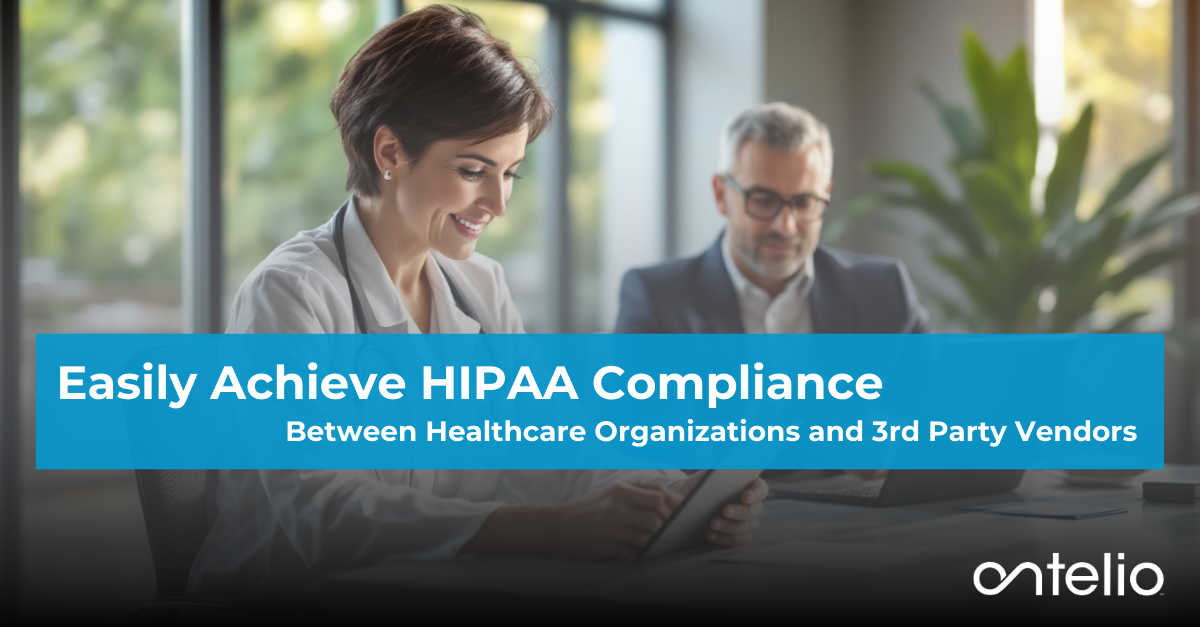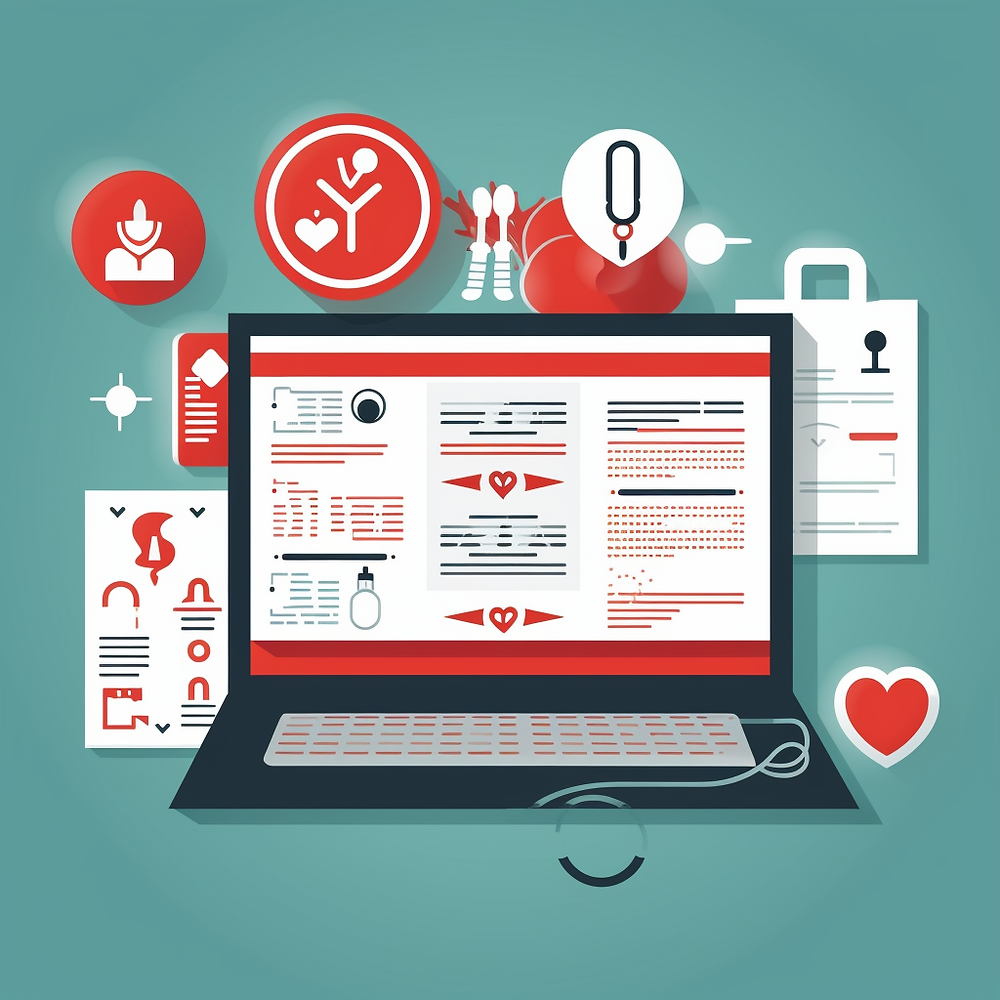HIPAA Compliance Between Healthcare Organizations and Business Associates
In the healthcare industry, managing and safeguarding Protected Health Information (PHI) is not only a regulatory necessity but also a vital...
5 min read
Marcel Fournier Jul 29, 2024 8:53:42 AM

In the era of global interconnectivity, the importance of information privacy cannot be overstated. This is especially true in healthcare, where safeguarding Personal Health Information (PHI) is paramount. While the digital age brings numerous benefits to healthcare, it also introduces significant risks, with PHI data breaches being the most concerning.
 PHI data breaches occur when unauthorized individuals gain access to personal health information. These breaches can range from basic patient details to sensitive medical histories, test results, health insurance information, and genetic data. Given the nature of this information, a breach can have severe consequences beyond the healthcare sector. It can lead to identity theft and financial fraud and significantly impact an individual's personal life and mental wellbeing.
PHI data breaches occur when unauthorized individuals gain access to personal health information. These breaches can range from basic patient details to sensitive medical histories, test results, health insurance information, and genetic data. Given the nature of this information, a breach can have severe consequences beyond the healthcare sector. It can lead to identity theft and financial fraud and significantly impact an individual's personal life and mental wellbeing.
Healthcare data breaches pose a significant risk of identity theft and financial fraud. Understanding the value of the compromised information, how cybercriminals exploit it, and the consequences for the victims involved is crucial.
PHI encompasses sensitive details, such as names, addresses, birth dates, Social Security numbers, insurance information, and medical histories. Unlike other data types, such as credit card information, health information, and identities are immutable and not easily changed or replaced.
Furthermore, PHI often provides a comprehensive profile of an individual, making it more valuable than other forms of data. Cybercriminals consider it a treasure trove, using it for various illicit activities, including medical fraud and identity theft.
Identity Theft: Cybercriminals utilize the personal information obtained from PHI to assume the victim's identity and engage in fraudulent activities, such as making unauthorized purchases, opening new credit card accounts, or getting loans. The damage caused can be extensive and long-lasting, with victims often unaware of the theft until significant harm has already occurred.
Medical Fraud: Hackers may also commit medical fraud by using the victim's health insurance information to receive medical services, file false insurance claims, or obtain prescription drugs for illegal purposes. This type of fraud leads to financial loss and can put the victim's health at risk if their medical records are tampered with.
Financial Fraud: In addition to identity theft and medical fraud, cybercriminals can use PHI to commit other forms of financial fraud. With sufficient data, they can gain access to banking accounts, file fraudulent tax returns, or create synthetic identities that combine natural and fake information to deceive lenders or insurance providers.
The consequences of identity theft and financial fraud resulting from PHI data breaches go beyond financial loss. Victims often must invest significant time and resources to restore their identity, rectify their credit history, and resolve fraudulent charges. This process can be stressful labor-intensive and may even lead to denials of credit, loans, or job opportunities due to damaged credit scores.
The erosion of trust following a PHI data breach is a less tangible but highly damaging consequence. This erosion affects patient-provider relationships, organizational reputations, and the overall integrity of the healthcare ecosystem.
The relationship between healthcare providers and patients is built on trust, which is crucial for adequate care. Patients must feel confident that their health information will be handled with utmost care and privacy. A breach of this data signifies a breach of trust, leading to diminished faith in the provider.
Patients who lose trust in their healthcare providers may become hesitant to share critical health information, fearing that it may be mishandled or misused. This withholding of information can hinder healthcare providers' ability to provide accurate diagnoses and tailored treatments, potentially resulting in suboptimal healthcare outcomes.
Trust is a critical component of a healthcare organization's reputation. When there is a breach of protected health information (PHI), it can have long-lasting consequences for an organization's image. This breach can diminish patients, partners, and the general public's confidence in the organization's ability to safeguard sensitive information. The damage to the organization's reputation can have far-reaching effects, including loss of business and diminished partnership opportunities. It can take years, or even decades, to fully recover from the reputational harm caused by a PHI data breach.
The erosion of trust resulting from PHI data breaches has a broader impact on the health ecosystem. If patients cannot trust the institutions responsible for their care, it can hinder public health initiatives, impede research studies, and hinder the adoption of new health technologies. For instance, the effective use of electronic health records (EHRs) and telemedicine relies heavily on patient trust. Compromised trust can impede the progress and benefits that these technologies can bring.
Indeed, trust is not a resource that can be easily regained or lost without consequences. It is an essential element of healthcare, and the erosion of trust caused by PHI data breaches is a significant concern that must be addressed urgently.
Data breaches involving Personal Health Information (PHI) harm reputation and trust and can lead to severe legal consequences. The landscape of data privacy and protection laws has evolved significantly, imposing heavy penalties on organizations that fail to adequately protect sensitive health information.
The Health Insurance Portability and Accountability Act (HIPAA) establishes the standard for safeguarding sensitive patient data in the United States. Any organization dealing with PHI must ensure the implementation of necessary physical, network, and process security measures. Failure to comply with these rigorous regulations can result in severe penalties.
In Europe, the General Data Protection Regulation (GDPR) is the primary data protection and privacy regulation. GDPR applies to any organization that processes the personal data of individuals within the European Union, regardless of the organization's location.
Other countries have their own privacy laws, such as the Personal Information Protection and Electronic Documents Act (PIPEDA) in Canada and the Personal Data Protection Act (PDPA) in Singapore. These laws have similar requirements and penalties to HIPAA and GDPR.
While discussions about PHI data breaches often focus on financial losses, identity theft, and legal penalties, it is essential not to overlook the significant psychological impact on the victims.
Health data is deeply personal and private. It may contain information about past illnesses, mental health conditions, genetic risks, or other sensitive details that individuals may not widely share, even with close family or friends. A breach of this data can feel like a profound violation of privacy, leading to feelings of vulnerability, shame, or embarrassment.
Discovering that your PHI has been exposed can cause immediate stress and anxiety. Individuals may be concerned about the potential misuse of their information and the resulting consequences, such as identity theft or financial fraud. This anxiety is often amplified by the complexity of resolving the breach, which may involve multiple steps like contacting insurance companies, monitoring credit reports, and changing passwords.
In our ongoing fight against PHI data breaches, one solution is gaining recognition for its effectiveness and reliability in data sanitization – redaction. This process involves removing sensitive information from data sets and is particularly valuable in cases where complete PHI data is unnecessary, such as research or statistical analysis. Today, Ontelio's product, Censori, has emerged as a leading solution, offering advanced redaction capabilities to healthcare organizations worldwide.
Censori's innovative technology enables automated and simplified redaction of sensitive data from datasets, rendering the remaining data valuable yet harmless in case of unauthorized access. The incorporation of Censori into data management strategies augments data security and ensures regulatory compliance to stringent data privacy laws like HIPAA and GDPR. It also facilitates data sharing for research and analysis, thereby fostering advancements in healthcare services.
Enhanced Data Security: Censori utilizes a proprietary process and advanced artificial intelligence (AI) ensuring thorough and accurate redaction, significantly reducing the risk of PHI data breaches. If unauthorized access occurs, the absence of personal identifiers renders the data useless for malicious purposes.
Regulatory Compliance: Censori is designed with regulatory requirements in mind, enabling healthcare organizations to meet the de-identification and anonymization standards of data privacy laws like HIPAA, GDPR, and others.
Facilitates Data Sharing: Using Censori allows healthcare organizations to share de-identified or redacted data more freely for research and analysis, contributing to scientific advancements and overall improvements in healthcare services.
Contact Ontelio today to experience the power and reliability of Censori™.

In the healthcare industry, managing and safeguarding Protected Health Information (PHI) is not only a regulatory necessity but also a vital...

3 min read
In the healthcare sector, maintaining the balance between protecting data and sharing valuable information for research and innovation is crucial....

8 min read
With the increasing adoption of digitization in the healthcare sector, the management and protection of personal health information (PHI) has...